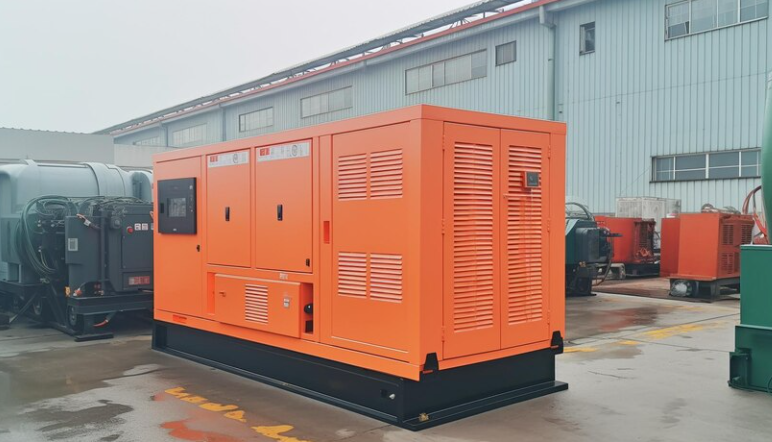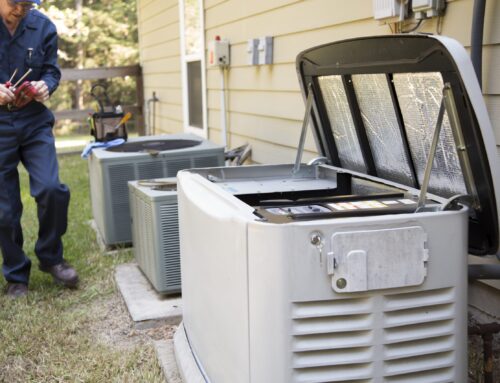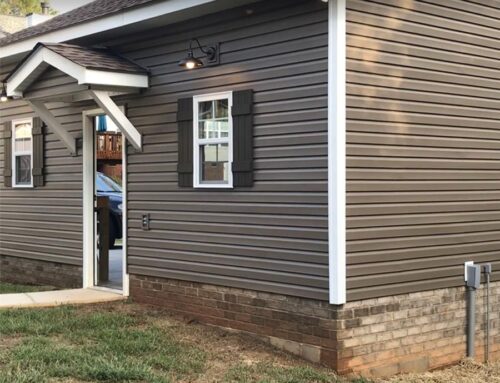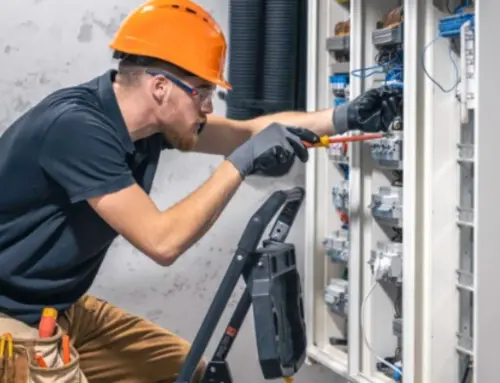When the power goes out, cities can grind to a halt—traffic lights stop working, businesses shut down, and homes are left in the dark. In a world where extreme weather events and growing energy demands are becoming the norm, having a solid backup plan is no longer optional.
Generators do more than keep the lights on—they ensure essential services like hospitals, water systems, and communication networks keep running when it matters most. But there’s more to it than just plugging in a power source. Urban planners and architects are weaving generator systems into city designs, balancing technical needs with the aesthetics and sustainability of the built environment.
This thoughtful integration plays a huge role in shaping cities that can weather the unexpected while continuing to thrive. Let’s explore how generators fuel both resilience and forward-thinking urban planning.
How Does Generator Installation Support Urban Resilience in Power Outages?
Urban resilience refers to a city’s ability to adapt, withstand, and recover from disruptions, whether they be caused by natural disasters, infrastructure failures, or other emergencies. A critical element of this resilience is the ability to maintain power during outages, ensuring that essential services remain operational and urban life continues uninterrupted.
Generators play a central role in this resilience framework by offering backup power during grid failures. Whether it’s a storm, an equipment malfunction, or a natural disaster, the ability of generators to supply power ensures that essential systems stay up and running. Key functions such as transportation systems, communication networks, emergency services, healthcare facilities, and businesses all rely on electricity to function. By having generators in place, cities can avoid the crippling effects of power outages, from traffic gridlock to healthcare disruptions.
Specific benefits of generator installation for urban resilience include:
- Emergency Support Systems: Hospitals, fire stations, police departments, and disaster relief operations all rely on generators to maintain critical functions during power failures. With the increasing frequency of natural disasters, having these backup systems in place ensures that these services continue to operate without interruption.
- Business Continuity: The business sector, especially in industries such as food storage, manufacturing, and retail, depends on a continuous power supply. By investing in backup generators, businesses can minimize downtime, avoid losses, and keep their operations going even when the grid fails.
- Communication Infrastructure: The role of communication systems is pivotal during an emergency. Generators help ensure that communication systems, including cell towers and data centers, remain operational, keeping the flow of information intact and enabling quicker response times to crises.
- Residential Stability: Urban areas house thousands of residents whose lives rely on the uninterrupted supply of power. Backup generators at the municipal or neighborhood level can help ensure that heating, lighting, and basic living conditions are maintained during outages, contributing to the overall stability of the urban environment.
By making backup power sources a priority in urban planning, cities can effectively mitigate the risks posed by power outages and foster resilience across all sectors.
What is the Impact of Reliable Backup Power on Urban Infrastructure?
Urban infrastructure is an intricate web of systems and services, all of which rely on a steady and continuous supply of power. The integration of reliable backup generators can significantly impact the resilience and effectiveness of this infrastructure, from transportation networks to water systems, public utilities, and more.
- Transportation Networks: Cities are built around intricate transportation systems that rely on electricity for traffic lights, subways, and other critical transportation functions. In the event of a power outage, traffic congestion and chaos can ensue, resulting in delays and accidents. Generators play a crucial role in keeping these systems operational, even in the face of power loss.
- Water and Wastewater Systems: Urban water and sewage systems rely on electricity to pump water into homes, treat wastewater, and maintain sanitation. Backup power through generators is critical in keeping these systems running, especially during emergencies or severe weather conditions when water systems are most vulnerable.
- Public Utilities: Essential utilities such as gas, telecommunications, and electrical grids are heavily dependent on uninterrupted power. A sudden disruption can lead to broader service failures across a city, impacting everything from heating systems to communication networks. By integrating generators into utility systems, cities can ensure that these services are not only restored more quickly but remain stable during outages.
- Smart City Technologies: With the rise of smart city technologies, which use data and connected devices to improve urban living, the need for continuous power becomes even more apparent. Data centers, surveillance systems, and IoT (Internet of Things) sensors that monitor traffic, air quality, and other essential services depend on a reliable electricity supply. Generators provide the backup necessary to keep these technologies functioning even during power failures, ensuring that smart cities remain “smart” no matter the circumstances.
Generators act as a stabilizing force within urban infrastructure, keeping critical systems operational and minimizing the cascading effects of power disruptions.
How Do Cities Integrate Generator Systems into Urban Planning Strategies?
Urban planning involves creating environments that support the long-term needs of a city’s residents and businesses, and generators are increasingly seen as an essential part of this equation. Integration of generator systems into urban planning strategies goes beyond simple installation; it requires a comprehensive, forward-thinking approach that ensures seamless operations during power outages.
Cities incorporate generators into their planning through the following strategies:
- Designating Critical Infrastructure for Backup Power: As part of resilience planning, cities identify and designate critical infrastructure—such as hospitals, police and fire stations, water treatment facilities, and transportation hubs—as essential generators for backup power. These facilities are often prioritized for generator installations to ensure they can operate independently in case of grid failure.
- Urban Zoning and Generator Placement: Urban planners consider generator placement during the design of new neighborhoods, commercial districts, or public spaces. This planning involves assessing how generators will be integrated into residential and commercial buildings, public areas, and green spaces without disrupting aesthetics or accessibility. Ensuring that generators are placed in accessible, safe locations ensures they can be activated quickly and with minimal disruption.
- Renewable and Sustainable Backup Power: With the growing emphasis on sustainability, cities are increasingly looking to incorporate renewable energy sources into their generator systems. Solar-powered or hybrid generators, for example, provide a more environmentally friendly option for backup power. Cities are integrating these systems into their broader energy strategies, enabling them to become less reliant on fossil fuels and reducing their carbon footprint while still maintaining resilience.
- Decentralized Power Grids: Some urban planners are shifting toward decentralized power grids, which consist of smaller, localized generators and renewable energy sources that work together. These systems reduce the vulnerability of the entire grid and ensure that localized areas can remain operational even when other parts of the city experience disruptions.
- Building Regulations for Energy Efficiency: Many cities are incorporating energy-efficient designs into building codes that require generator systems to meet certain performance and environmental standards. These regulations ensure that the generators used in urban areas are not only capable of providing backup power but also operate efficiently and sustainably.
Through thoughtful integration of generator systems into urban planning, cities can bolster their infrastructure, reduce vulnerabilities, and create a more resilient urban environment that is better equipped to handle power failures.
What Role Does Generator Installation Play in Ensuring Public Safety During Emergencies?
When emergencies strike, whether due to natural disasters, power failures, or other unforeseen events, public safety becomes the number one priority. Generators play an essential role in ensuring that emergency response systems and public safety infrastructure continue to operate under adverse conditions.
- Emergency Services: Generators ensure that police, fire, and ambulance services remain operational, providing vital support when the grid is down. These agencies need to be able to respond quickly to emergencies, and having backup power ensures that dispatch centers, communication networks, and emergency vehicles can operate without delay.
- Public Shelters and Evacuation Centers: During major emergencies, such as hurricanes or wildfires, cities often open public shelters to house displaced residents. Generators are critical in keeping these shelters fully functional, providing lighting, heating or cooling, water supplies, and medical support. These shelters often rely on temporary setups with limited resources, and having backup power ensures the safety and well-being of those in need.
- Surveillance and Security Systems: In emergencies, maintaining law and order is a challenge. Surveillance systems, alarm systems, and streetlights powered by backup generators help ensure public safety by deterring crime, aiding emergency response, and providing real-time data on critical incidents.
- Communication and Coordination: During crises, it’s essential to keep lines of communication open between emergency services, citizens, and authorities. Backup power from generators keeps public service broadcasts, emergency alerts, and communication networks operational, ensuring coordination and informed decision-making across the city.
By incorporating generator systems into public safety strategies, cities can guarantee that they are well-prepared for emergencies, ensuring the continuity of vital services and the protection of citizens.
The role of generator installation in urban resilience and planning is far more intricate than simply providing power during outages. From supporting essential infrastructure to enhancing public safety and contributing to the sustainability of cities, generators are integral to ensuring that cities remain resilient in the face of growing challenges.
By strategically incorporating backup power solutions into urban planning, cities can better weather disruptions, maintain critical systems, and safeguard public well-being, creating a more secure and sustainable future for urban residents.
How Starnes Electric LLC Enhances Urban Resilience with Expert Generator Installations
At Starnes Electric LLC, we understand the importance of reliable power in maintaining urban resilience and public safety. Our expert generator installation services are designed to support cities and communities by providing seamless backup power solutions. Whether you’re enhancing your infrastructure or ensuring the safety of your residents during emergencies, our team is equipped to help with the installation and maintenance of high-quality generator systems.
How We Can Help
- Customized Generator Solutions: We assess your specific needs to recommend and install the most efficient generator for your urban planning or commercial infrastructure, ensuring uninterrupted power during outages.
- Seamless Integration into Infrastructure: Whether it’s for hospitals, fire stations, or public utilities, we work closely with city planners and facility managers to integrate backup power systems that align with your existing infrastructure.
- Ongoing Support and Maintenance: Beyond installation, we offer maintenance and support services to ensure your generator is always in optimal working condition, ready to perform when needed most.
Partner with Starnes Electric LLC to secure your city’s infrastructure and ensure operational continuity during power outages. Let us provide you with the expertise to keep your community powered, no matter what.
Ready to Secure Your City’s Power Supply? Contact Starnes Electric LLC Today!
Don’t wait for the next power outage to take action. Ensure your urban infrastructure remains operational, safe, and resilient with expert generator installations from Starnes Electric LLC. Our team is ready to provide customized solutions tailored to your city’s needs, ensuring reliable backup power when it matters most.
Call us today for a consultation and let us help you power up your urban resilience!






